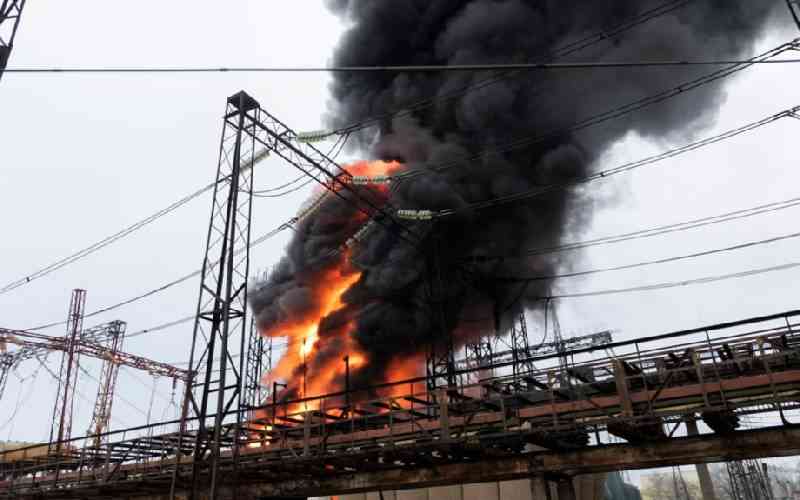×
The Standard e-Paper
Fearless, Trusted News

Russia fired dozens of missiles and 60 drones at Ukraine's energy infrastructure Friday, damaging three power plants and causing massive blackouts, according to Ukrainian authorities.
President Volodymyr Zelenskyy accused Russia of targeting two hydropower plants and threatening to cause an environmental disaster not only in Ukraine but also in neighboring Moldova.